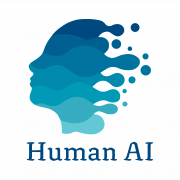Algorithms and rights. Privacy and Data Protection Copy
“TikTok fined $15.9 million for misuse of children’s data in Britain”; “Meta fined $1.3 billion for violating EU data privacy rules”; “Italy finds OpenAI violates users’ privacy”….
These and many other news about leaks of personal information, the indiscriminate use of data by technology companies and the advance of AI and its algorithms trained with data; put on the table the need for a reflection on the ethical and legal limits in this field of data protection and privacy.
PRIVACY AND PROTECTION
Privacy and Data Protection – although closely related realities – are recognized as two distinct rights, requiring different legal protection.
In the European Union, human dignity is recognized as an absolute fundamental right. Within this notion of dignity, privacy or the right to a private life, being autonomous, having control of information about oneself play a key role. Privacy is not only an individual right but is also considered as a social value. That is why privacy is recognized as a universal human right – almost every country in the world recognizes it in some way, in its constitution or in other regulations – while data protection does not (at least not yet).
On the other hand, the notion of data protection originates from the right to privacy and has the precise objective of guaranteeing the fair processing (collection, use, storage) of personal data by both the public and private sector of any information relating to an identified or identifiable natural person.
Therefore, privacy and data protection are two rights established in the EU Treaties and in the Charter of Fundamental Rights of the European Union.
The right to privacy, and specifically the right of the individual with respect to the processing of personal data, are of great relevance in today’s digitized world. The right of an individual to control his or her personal data and the processing of such data guarantees personal autonomy and protects the personal sphere.
IA, ALGORITHMS AND DATA
Considered the fourth industrial revolution, the advance of artificial intelligence is leading to major transformations in fields as diverse as medicine, education and business. However, this progress comes with its share of controversy.
Massive data collection is essential to train AI algorithms and improve their performance. This training practice raises ethical and legal dilemmas about how they should be handled and stored. The indiscriminate collection of data by companies and governments, often without the proper consent of users, generates some mistrust and concern and highlights the urgent need for stricter and more effective data protection regulations.
Finding a balance between data protection and the progress of technology may not be an easy task. As innovation and technological development harnesses the full potential of artificial intelligence, it is necessary to ensure the privacy and security of users in a world that is already so heavily invested in virtual reality.
REGULATION AND ETHICS
It is crucial – in this regard – that governments, companies and society as a whole work to develop effective ethical and legal frameworks that protect the rights of individuals without having to put the brakes on responsible innovation. Laws and policies that promote transparency, accountability and informed consent in the handling of personal data are needed.
Large technology corporations that handle massive amounts of personal information must be ethically responsible and transparent in the use they make of this data; previously requesting the user’s clear consent through a conscious action and being able to know the processing, use and storage of their data. It is essential to be aware that without consent, there should be no processing.
Ultimately, the debate on data protection, the digital age and artificial intelligence is a reflection of the ethical and social challenges we face in the 21st century, a century marked by a digital and technological reality, a virtual reality so real that it may come to know us better than our own family.
Therefore, it is necessary to address these challenges with responsibility and a vision of the future, always seeking a balance between technological progress and respect for the fundamental rights of individuals.
HUMAN AI Y EL USO DE DATOS
At Human AI we have developed a code of ethical conduct to which Human AI clients adhere in order to access our services. This code establishes the legal and ethical responsibilities associated with the use of the data obtained when using Human AI. Our code of conduct reflects the guidelines of the American Psychological Association, the recommendation of the Beijing Consensus on Artificial Intelligence and Education, the ethical principles of the Digital Bill of Rights and the Commission on Evidence of the Higher Council of Psychology.
At Human AI:
- All persons whose texts are analyzed are anonymized with a code.
- Personal identification data is never used, only the code assigned to each person, not even in the final report.
- The text that is entered and analyzed by the AI has no identifying data (surname, place of residence, etc.).
If you want to know how Human AI works request our demo 👉🏼 tu-demo.humanaitech.com





